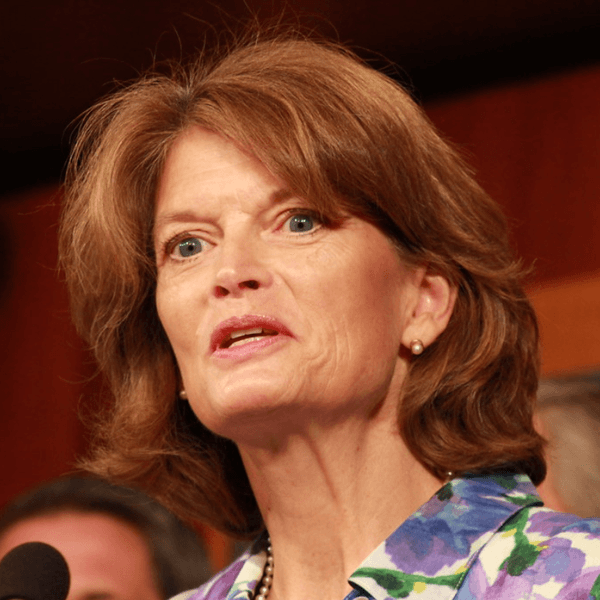
Reprinted with permission from Roll Call.
It was one of those Baltimore row houses that have come to define the city, three stories high, with a set of white marble steps out front. I will never forget those steps, the ones I had to scrub weekly, brush in one hand, Bon Ami cleanser in the other. And when I was finished, I had to do the same for older neighbors who needed the help. But those folks did their part, my mother reminded me, watching over the neighborhood from their windows when the block’s men, women and children were away working, running errands or attending school.
That’s what neighbors do for neighbors, all over America. And yes, that includes West Baltimore, about which Donald Trump tweeted: “No human being would want to live there.”
To my fellow Americans, especially those amused by the “antics” of the president of the United States, who buy what he’s selling, imagine how you would feel if those people and places that are in your bones were judged subhuman by the person whose job it is be a leader, your leader.
Consider how the language of Trump’s presidential tweets — his talk of infestation and disrespect of the people who are as American as you, as complicated and human as you — is tearing the country apart.
Ask why it is that Donald Trump only relegates black and brown people to the category of not human, how those caught in the opioid crisis of West Virginia and Ohio or the cratering manufacturing landscape of the Midwest, well, those are the Americans who may have been left behind but are worthy nonetheless of his empathy and concern. Is it because they voted for him? Is it because they are white?
To me West Baltimore was home, where I grew up with two parents, two brothers, two sisters and an occasional boarder. The kitchen was the heart of the home; it was where we often gathered to talk — and eat — with family and friends and classmates, around that long table with red and white painted benches. Those from coast to coast, who grew up on farms and in high rises, know and smile at some version of that scene.
I returned to the city to work as an editor at The Baltimore Sun when Harborplace and the National Aquarium sparkled, efforts at revitalization as manufacturing jobs shifted or disappeared. Though I don’t live there anymore, I still visit, to see family and friends and enjoy great times with them — eating a seafood meal, listening to the angelic voices of the Maryland State Boychoir (so proud my great-nephew auditioned and got in), taking in the exhibits at the Reginald F. Lewis Museum of Maryland African American History & Culture, named for the late businessman and philanthropist.
The exhibits tell the story of Baltimore and Maryland, and some of it is not pretty. But it explains the racism, the redlining and discrimination in housing, employment, education and more that built a stratified society that is not easy to dismantle, the seeds of many of the conditions that Trump uses as ammunition. It also tells the story of the African American men and women who worked hard and cared and achieved despite astounding obstacles.
What Trump said about the congressional district of Rep. Elijah Cummings is simplistic and ridiculously incomplete — notice he failed to mention Johns Hopkins Hospital, where his HUD secretary Ben Carson built a reputation as director of pediatric neurosurgery and where I was born. The district includes parts of Baltimore City, Baltimore County and Howard County, with a median income above the national average, one that puts the South Carolina district once represented in Congress by his acting chief of staff and defender Mick Mulvaney to shame if you use that metric.
But there are clearly challenges in Baltimore, generations in the making, that Cummings has tried to work with the president to solve. He even met with Trump early on, and the president seemed to actually listen. That won’t happen again, though. Besides his personal resentment of the man, a black man, who has the audacity to perform his duties as chair of the House Oversight Committee, which includes calling the president and his family to account, being president of all the people — his job description — is not something Trump is interested in.
He is in a reelection battle and needs to rev up his base, and that is all that matters to Trump and his Republican Party.
Trump has reneged on his campaign promises to African American voters — his message of “What do you have to lose?” But Trump has also broken promises to those out of work in Ohio and Michigan, the Iowa farmers suffering from a tariff war, and the West Virginians who put their trust in him.
The racism is indicative of and a distraction from policies that hurt the struggling of every color: the families who would lose food assistance and the children whose free and reduced school lunches would disappear, adding worry and subtracting nutrition needed for learning. All the while, the loosening of regulations hurts the environment and benefits pay-day lenders and those who run for-profit prisons and colleges. And doesn’t Jared Kushner’s family own Maryland apartments cited for rodent infestation?
That won’t stop Cummings from his work. He said: “Mr. President, I go home to my district daily. Each morning, I wake up, and I go and fight for my neighbors. It is my constitutional duty to conduct oversight of the executive branch. But it is my moral duty to fight for my constituents.”
Though not of his generation, I still grew up in a Baltimore with racial divisions, neighborhoods and schools and most everything else separate and unequal. I could look up to an older sister and brothers who, unlike Trump, did something about the injustice, marching and putting their own lives on the line because of their love for America. Family members teach in the city’s schools, and my eldest brother still works on civil rights issues, now as an advocate and policymaker for access for the disabled on public transportation for the state of Maryland.
I learned every lesson I needed in my neighborhood, from the nuns at St. Pius V, Oblate Sisters of Providence, members of the first successful Roman Catholic sisterhood in the world established by women of African descent. I roamed the stacks of the Enoch Pratt Free Library, established in 1882, especially my home branch, which stayed open during unrest following the death of Freddie Gray, offering safety and solace.
As my world expanded, I remembered everything my parents taught me.
Now Americans are learning about how loyal and resilient Baltimoreans can be, differences vanishing when the city’s pride and personality are attacked. You will get sick of hearing the recipe for a perfect crab cake (easy on the filler).
And pay attention — the next target of Trump’s wrath might take some notes from “Charm City.”
Mary C. Curtis has worked at The New York Times, The Baltimore Sun, The Charlotte Observer, and as national correspondent for Politics Daily. Currently she is a senior facilitator with The OpEd Project. Follow her on Twitter @mcurtisnc3.








